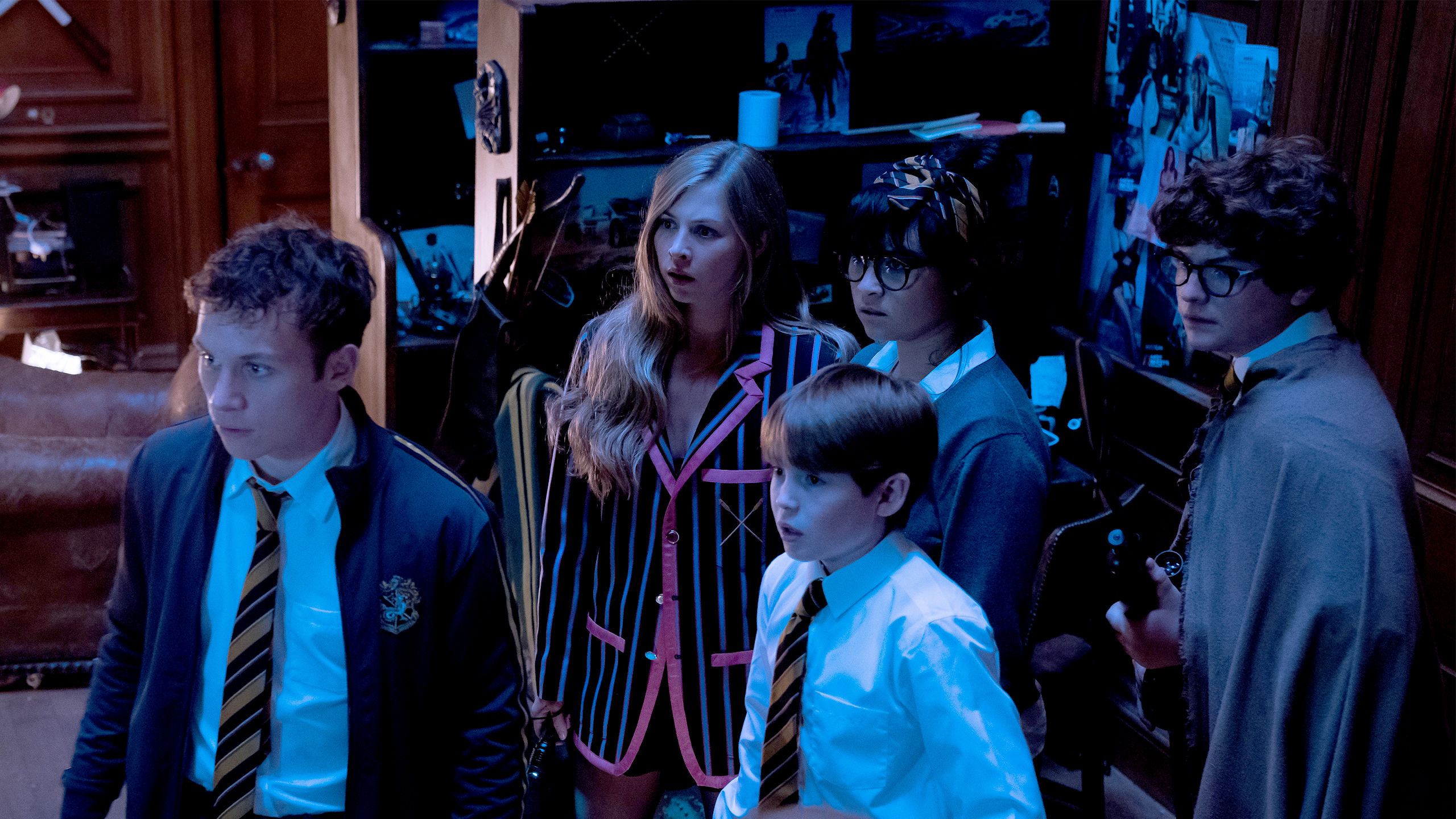Movie Rulez: The Ultimate Guide To Cinematic Enjoyment
In the world of cinema, "movie rulez" serves as a beacon for those who cherish the art of film. It signifies not just the technical aspects of filmmaking but the experience and emotions that movies evoke in audiences. For both film enthusiasts and casual viewers, understanding the rules of movie appreciation can greatly enhance the enjoyment of this timeless form of entertainment.
Movies have been a staple of entertainment since the late 19th century and have evolved significantly over time. From silent black-and-white films to vibrant, sound-filled blockbusters, the cinema has expanded its reach and impact. With the advent of digital technology, the way we consume movies has transformed, but the core principles of what makes a movie captivating remain unchanged. The key is to delve into these principles and understand the unwritten "movie rulez" that govern cinematic enjoyment.
This guide aims to explore the different facets that contribute to the magic of movies. Whether you're a budding filmmaker, a seasoned critic, or someone who simply loves an evening at the cinema, you'll find insights and tips that will deepen your appreciation for films. From the role of storytelling to the impact of visual effects, "movie rulez" will guide you through the intricate world of cinema, offering a comprehensive look at what makes movies an enduring art form.
Read also:All About Sebastiaacuten Carvajals Wife A Comprehensive Insight
Table of Contents
- What Makes a Great Movie?
- The Art of Storytelling
- Role of Directors
- Importance of Cinematography
- Soundtracks and Scores
- Special Effects and CGI
- Acting and Performance
- Genre Diversity in Cinema
- Impact of Audience Reviews
- How Do Cinematic Themes Influence Society?
- What Role Does Culture Play in Films?
- Future of Cinema
- How to Enhance Your Movie Watching Experience?
- Frequently Asked Questions
- Conclusion
What Makes a Great Movie?
A great movie is one that captivates its audience through a combination of compelling storytelling, strong performances, and technical excellence. The essence of a great movie lies in its ability to resonate with viewers on an emotional level, leaving a lasting impact long after the credits roll.
Several factors contribute to the greatness of a film:
- Storytelling: A well-structured narrative that keeps audiences engaged and invested in the characters and plot.
- Direction: The director's vision and ability to translate a script into a cohesive and visually engaging film.
- Cinematography: The art of capturing visuals that enhance the storytelling and create an immersive experience.
- Sound: The use of soundtracks and audio effects to evoke emotions and set the tone of the film.
- Acting: Performances that bring characters to life and make them relatable to the audience.
- Editing: The seamless blending of scenes to maintain the film's pace and coherence.
The Art of Storytelling
Storytelling is the backbone of any great film. It involves crafting a narrative that is both engaging and thought-provoking. A well-told story has the power to transport audiences to different worlds, evoke emotions, and provoke reflection.
Key elements of effective storytelling include:
- Plot: The sequence of events that make up the story.
- Characters: The individuals who drive the story and with whom audiences connect.
- Conflict: The challenges and obstacles faced by characters, which create tension and intrigue.
- Theme: The underlying message or insight that the story conveys.
Role of Directors
Directors play a pivotal role in the filmmaking process. They are responsible for bringing a script to life by guiding the creative and technical aspects of production. A director's vision shapes the film's overall tone, style, and impact.
Responsibilities of a director include:
Read also:Mastering Efficiency With Dewalt Tools The Ultimate Guide
- Visualizing the screenplay: Translating the written script into visual storytelling.
- Guiding actors: Directing performances to ensure they align with the film's vision.
- Overseeing technical elements: Collaborating with cinematographers, editors, and other crew members to achieve the desired look and feel.
- Maintaining coherence: Ensuring that all elements of the film work together harmoniously.
Importance of Cinematography
Cinematography is the art of capturing moving images on film or digital media. It plays a crucial role in shaping the visual narrative of a movie. Cinematographers work closely with directors to create a visual style that enhances the story.
Key aspects of cinematography include:
- Camera angles: The positioning of the camera to capture different perspectives and emotions.
- Lighting: The use of light and shadows to create mood and atmosphere.
- Composition: The arrangement of elements within a frame to draw attention to key aspects of the scene.
- Camera movement: Techniques such as panning, tilting, and tracking to add dynamism to scenes.
Soundtracks and Scores
Soundtracks and scores are integral to the cinematic experience. They enhance the emotional impact of a film, provide continuity, and help convey the story's tone. A memorable score can become synonymous with a movie, leaving a lasting impression on audiences.
Components of a film's soundscape include:
- Music score: Original compositions created specifically for the film.
- Sound effects: Audio elements that enhance realism and immersion.
- Dialogue: The spoken words of characters, which are often accompanied by background music to set the scene.
- Ambient sound: Background noises that create a sense of place and atmosphere.
Special Effects and CGI
Special effects and computer-generated imagery (CGI) have revolutionized the way stories are told on screen. They allow filmmakers to create fantastical worlds and bring imaginative concepts to life, expanding the possibilities of storytelling.
Types of special effects include:
- Practical effects: Physical effects created on set, such as explosions and prosthetics.
- Visual effects (VFX): Digital enhancements added in post-production to create elements that cannot be achieved practically.
- CGI: The use of computer graphics to create realistic or fantastical visual elements.
Acting and Performance
Acting is at the core of bringing characters to life on screen. Skilled actors convey emotions, motivations, and personalities, making characters relatable and engaging to audiences. A powerful performance can elevate a film and leave a lasting impression.
Aspects of effective acting include:
- Character development: Understanding and embodying the character's background and motivations.
- Emotional range: The ability to express a wide range of emotions convincingly.
- Dialogue delivery: The art of conveying lines naturally and meaningfully.
Genre Diversity in Cinema
Film genres offer a wide range of storytelling styles and themes, catering to diverse audience preferences. Understanding different genres allows viewers to explore various narratives and experiences within the world of cinema.
Popular film genres include:
- Action: High-energy films characterized by physical stunts and sequences.
- Drama: Focused on character development and emotional themes.
- Comedy: Aimed at entertaining and eliciting laughter.
- Horror: Designed to evoke fear and suspense.
- Sci-fi: Exploring futuristic and speculative concepts.
- Romance: Centered around love stories and relationships.
Impact of Audience Reviews
Audience reviews and ratings play a significant role in shaping a film's success and reception. They provide valuable feedback to filmmakers and influence potential viewers' decisions to watch a movie.
Importance of audience reviews:
- Word of mouth: Personal recommendations from viewers can significantly impact a film's popularity.
- Social media: Platforms for audiences to share their opinions and experiences with a broader audience.
- Review aggregators: Websites that compile reviews and provide an overall rating, such as Rotten Tomatoes and IMDb.
How Do Cinematic Themes Influence Society?
Cinematic themes often reflect societal issues and contribute to cultural discourse. Films have the power to challenge norms, raise awareness, and inspire change by addressing topics such as social justice, identity, and human rights.
Ways in which films influence society include:
- Representation: Portraying diverse characters and stories to promote inclusivity.
- Empathy: Encouraging audiences to connect with characters' experiences and perspectives.
- Awareness: Highlighting important issues and sparking conversations.
What Role Does Culture Play in Films?
Culture plays a significant role in shaping the themes, narratives, and aesthetics of films. It informs the way stories are told and contributes to the authenticity of characters and settings. Films often serve as a mirror to society, reflecting cultural values, beliefs, and traditions.
Elements of cultural influence on films:
- Language: The use of dialogue and accents to convey cultural context.
- Customs and traditions: Incorporating cultural practices and rituals into the storyline.
- Setting: The depiction of cultural landmarks and environments to enhance storytelling.
Future of Cinema
The future of cinema is shaped by technological advancements and changing audience preferences. As digital streaming platforms continue to rise, the traditional moviegoing experience is evolving. However, the core principles of storytelling and cinematic artistry remain essential to the industry's growth.
Trends in the future of cinema include:
- Virtual reality (VR): Creating immersive experiences that allow audiences to explore films in a new dimension.
- Interactive storytelling: Engaging viewers by allowing them to influence the narrative.
- Diverse representation: Expanding the range of voices and stories told in films.
How to Enhance Your Movie Watching Experience?
Enhancing your movie-watching experience involves creating an environment that allows you to fully immerse yourself in the film. By paying attention to details such as sound and lighting, you can elevate your enjoyment and appreciation of movies.
Tips for enhancing your movie-watching experience:
- Choose the right setting: Create a comfortable viewing space with minimal distractions.
- Optimize sound: Use quality speakers or headphones to experience the film's audio fully.
- Adjust lighting: Ensure the room is dark enough to focus on the screen without glare.
- Engage with the film: Take notes or discuss the film with others to deepen your understanding and appreciation.
Frequently Asked Questions
What makes a movie timeless?
A timeless movie is one that resonates with audiences across generations. It often features universal themes, strong storytelling, and memorable performances that continue to captivate viewers regardless of changing trends.
How do movie ratings work?
Movie ratings are assigned by organizations such as the Motion Picture Association (MPA) to classify films based on their content. Ratings help audiences determine the suitability of a film for different age groups and preferences.
Why are film festivals important?
Film festivals provide a platform for filmmakers to showcase their work, network with industry professionals, and gain recognition. They celebrate creativity and diversity in cinema and often serve as launchpads for emerging talent.
What is the role of a film critic?
Film critics analyze and evaluate movies, providing audiences with informed opinions and insights. Their reviews can influence public perception and contribute to the cultural conversation surrounding a film.
How has streaming changed the film industry?
Streaming platforms have revolutionized the way audiences access and consume films. They offer convenience and a vast library of content, allowing viewers to watch movies on demand and discover diverse stories from around the world.
What is the significance of awards in the film industry?
Awards recognize excellence in filmmaking and celebrate the achievements of artists and technicians. They can elevate a film's profile, boost its box office performance, and enhance the careers of those involved.
Conclusion
The art of cinema is a dynamic and multifaceted realm that continues to evolve with technological advancements and cultural shifts. By understanding the "movie rulez" that govern cinematic enjoyment, audiences can deepen their appreciation for films and the stories they tell. Whether you're a casual viewer or a dedicated cinephile, embracing these principles can enhance your movie-watching experience and foster a lifelong love for the art of film.
Article Recommendations

